New Scientist covers the latest developments in science and technology that will impact your world. New Scientist employs and commissions the best writers in their fields from all over the world. Our editorial team provide cutting-edge news, award-winning features and reports, written in concise and clear language that puts discoveries and advances in the context of everyday life today and in the future.
Elsewhere on New Scientist
Climate pessimism • Negative thinking is unpopular, but it could drive more realistic efforts to limit harm
New Scientist
Puffins arrive for breeding season
Carbon clean-up • Before we can store carbon, we must capture it. These are the main technologies for doing so.
Key carbon plan is unworkable • Climate models assume we can slow global warming by storing carbon dioxide underground, but the numbers don’t add up, finds Madeleine Cuff
Arctic permafrost is now a net emitter of major greenhouse gases
Progression of Parkinson’s disease slowed by antibody drug
Cyborg cockroach swarm is controlled by computers
Are pandas bad at sex because they have the wrong gut microbes?
Surprisingly huge black hole found in our galaxy
A crystal made only of electrons • Exotic material has now been seen under a microscope in unprecedented detail
Deadly upwellings of cold water pose threat to marine life
Bottle purifies water using your body’s static electricity
Lab-grown mini-tumours could revolutionise cancer therapy
‘Peaceful’ bonobos may be more aggressive than chimps
Post-op infection is often due to skin-dwelling microbes
The enigma that was Peter Higgs • The physicist revolutionised our understanding of the universe by theorising the Higgs boson, yet tried to avoid the call from the Nobel prize committee, says Karmela Padavic-Callaghan
Bacterium moves into an alga • A once-independent bacterium has evolved into an organelle that provides nitrogen to marine algal cells, an event so rare that there are only three other known cases, says Michael Le Page
Chatbots can persuade conspiracy theorists to change their minds
People in Australia made pottery over 2000 years ago
Treating your gum disease may prevent irregular heartbeat
Planets that look alike might be a sign of spacefaring aliens
A better way to use bionic hands?
Fractal seen at the molecular scale
Endangered white rhino could be saved by frozen skin
Really brief
The other energy crisis • One in five adults worldwide is living with fatigue. We need to change the way we think about exhaustion, says Amy Arthur
Our human story • Welcome to the team Five years ago, our extended human family got a bit bigger with the announcement of a new species of hominin. What have we learned since, asks Michael Marshall
Ghost ships
The hypochondria challenge • Millions of people experience symptoms many doctors dismiss as imaginary, but why? A moving first-person account is very revealing, finds Elle Hunt
Everything but the truth • Can you see through deceiving data and beguiling stories? Take the card test and find out, says Chris Stokel-Walker
New Scientist recommends
The TV column • A jaunty trip to the apocalypse Amid a deluge of dour shows about the end of the world, Fallout, based on the hit video games of the same name and set in the wastelands of 2296, stands out for being a lot of fun, says Bethan Ackerley
Your letters
Sound of silence • A new understanding of hearing could not only fix tinnitus, but reverse some types of deafness too, discovers Clare Wilson
How we hear
Prevention is better than a cure
Mind the gap • We appear to live in a patch of...
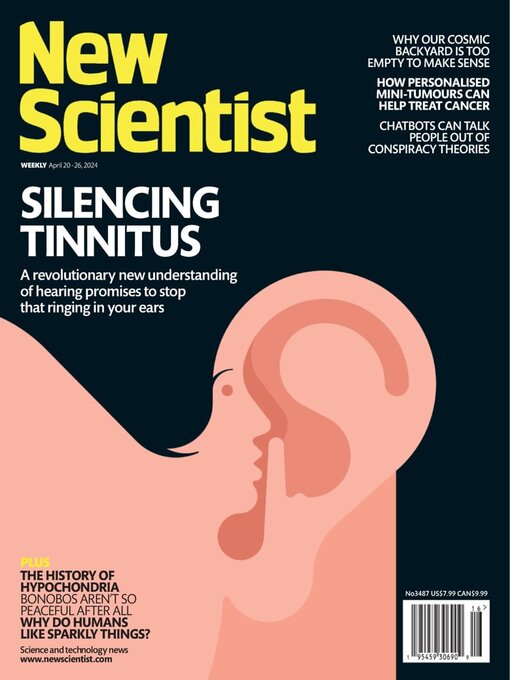
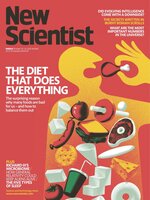 Oct 18 2025
Oct 18 2025
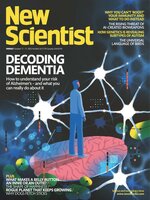 Oct 11 2025
Oct 11 2025
 Oct 04 2025
Oct 04 2025
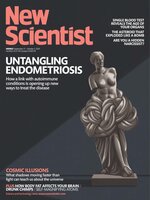 Sep 27 2025
Sep 27 2025
 Sep 20 2025
Sep 20 2025
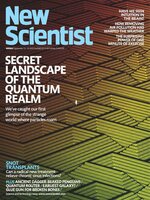 Sep 13 2025
Sep 13 2025
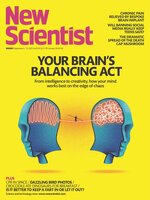 Sep 06 2025
Sep 06 2025
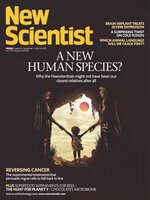 Aug 30 2025
Aug 30 2025
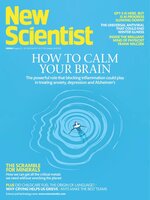 Aug 23 2025
Aug 23 2025
 Aug 16 2025
Aug 16 2025
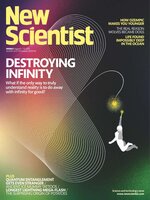 Aug 09 2025
Aug 09 2025
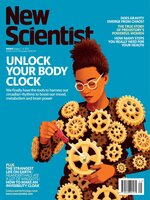 Aug 02 2025
Aug 02 2025
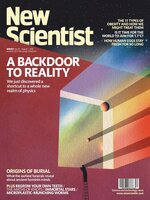 Jul 26 2025
Jul 26 2025
 Jul 19 2025
Jul 19 2025
 Jul 12 2025
Jul 12 2025
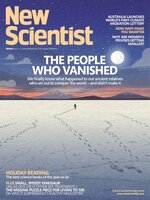 Jul 05 2025
Jul 05 2025
 Jun 28 2025
Jun 28 2025
 Jun 21 2025
Jun 21 2025
 Jun 14 2025
Jun 14 2025
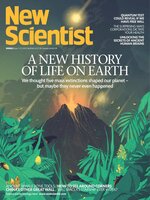 Jun 07 2025
Jun 07 2025
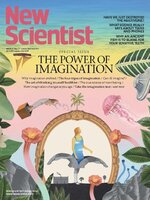 May 31 2025
May 31 2025
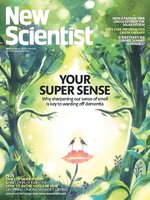 May 24 2025
May 24 2025
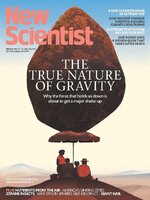 May 17 2025
May 17 2025
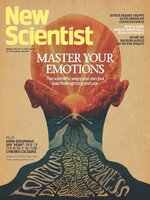 May 10 2025
May 10 2025